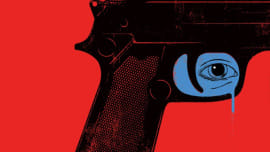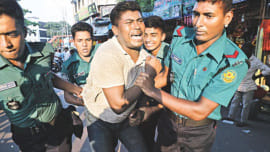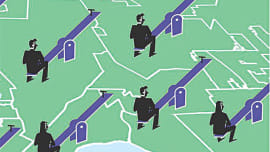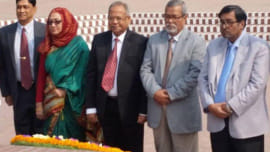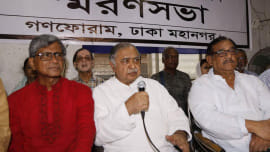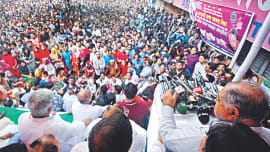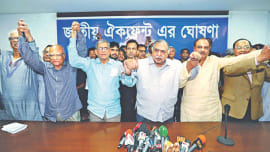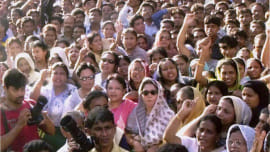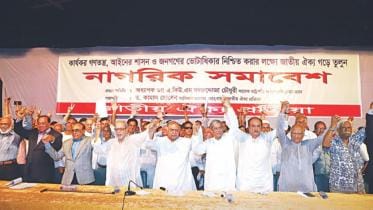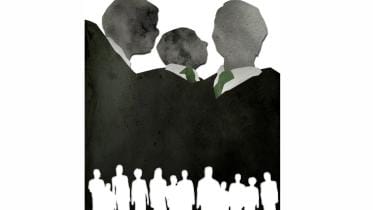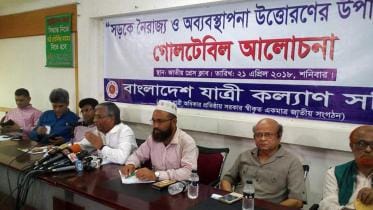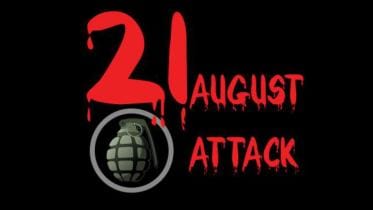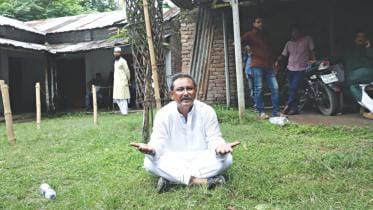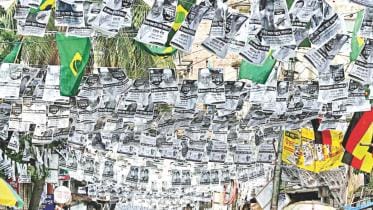Tax the rich
21 February 2019, 18:00 PM
Opinion
Vigilante justice or what?
31 January 2019, 18:00 PM
Opinion
Choking social media is not the answer
10 January 2019, 18:00 PM
Opinion
The effect of partisan policing
25 December 2018, 18:00 PM
Opinion
Nitpicking over nominations
4 December 2018, 18:00 PM
Opinion
EC seems to be in denial of ground realities
29 November 2018, 18:00 PM
Opinion
After the dialogue, now what?
5 November 2018, 18:00 PM
Opinion
How will the coalition politics pan out?
29 October 2018, 18:00 PM
Opinion
A rocky road ahead for Oikyafront
22 October 2018, 18:00 PM
Opinion
August 21 verdict and its implications for BNP
13 October 2018, 18:00 PM
Opinion
Tax the rich
September last year, a ranking of countries prepared by Wealth X, a global financial intelligence company, calculating the rise of ultra-rich individuals in their respective populations put Bangladesh on top.
21 February 2019, 18:00 PM
Vigilante justice or what?
On January 17, police in Khagan, Savar recovered the bullet-hit body of a man who was later identified as Ripon. Ripon, a line chief at a local garment factory, was the prime accused in a gang-rape case involving a female worker from his factory.
31 January 2019, 18:00 PM
Choking social media is not the answer
It's common knowledge that many opposition candidates were unable to campaign for themselves in the recently concluded elections
10 January 2019, 18:00 PM
The effect of partisan policing
In less than five days after the candidates officially hit the campaign trail on December 11, a number of opposition candidates—including prominent figures such as Dr Kamal Hossain, Mirza Fakhrul Islam Alamgir, Mirza Abbas and Reza Kibria—came under attack from their opponents, a trend that has since continued unabated.
25 December 2018, 18:00 PM
Nitpicking over nominations
Among the reports of a record number of nomination papers being rejected by election officials, Reza Kibria's case is particularly intriguing.
4 December 2018, 18:00 PM
EC seems to be in denial of ground realities
It's barely a secret that even after the election schedule was announced, the police filed hundreds, if not thousands, of so-called political cases against leaders and activists linked to the opposition.
29 November 2018, 18:00 PM
After the dialogue, now what?
It was unsurprising that the much-hyped dialogue between the ruling and opposition alliances didn't yield notable signs of progress.
5 November 2018, 18:00 PM
How will the coalition politics pan out?
After much deliberation, the government finally allowed the Oikyafront, the opposition alliance, to organise rallies in both Sylhet and Chittagong.
29 October 2018, 18:00 PM
A rocky road ahead for Oikyafront
Just a week or so ago, Dr Kamal Hossain, Badruddoza Chowdhury and BNP seemed to be on the same side of the fence. They held grudges against one another, yet they were allies in opposing the incumbent.
22 October 2018, 18:00 PM
August 21 verdict and its implications for BNP
The grisly attack on Awami League's rally in Dhaka on August 21, 2004 marks a watershed moment in Bangladesh's contemporary political history.
13 October 2018, 18:00 PM
Will the 'National Unity Process' succeed?
Regard-less of his distinguished credentials as a jurist and academic, Dr Kamal Hossain was once a formidable politician. He was the country's first law minister, leading the constitution drafting committee.
5 October 2018, 18:00 PM
The rise of the super rich
A recent report that says Bangladesh has had the highest rise in its ultra wealthy population, surpassing any other country in the world, may have taken many by surprise.
19 September 2018, 18:00 PM
A curious case of 'extortion'
The way Mozammel Hoque, a road safety campaigner, was arrested was hardly normal. A complaint was filed with the police by “a transport labour leader” accusing him of demanding extortion. Understandably, such cases are common in Bangladesh, and many of them false, targeting journalists and human rights defenders.
11 September 2018, 18:00 PM
A devastating assault on our national security
The August 21, 2004 grenade attack on an Awami League rally, targeting the-then opposition leader Sheikh Hasina and top party leaders, marked possibly the most devastating assault on our national security.
20 August 2018, 18:00 PM
How an unrestricted press could help assuage violence
There's an increasing inclination, both globally and domestically, among those in power to impede the media.
9 August 2018, 18:00 PM
An uneven battlefield
Among all ruling party-backed candidates in the three-city elections, Khairuzzaman Liton, in Rajshahi,
1 August 2018, 18:00 PM
What does the US-China trade war mean for Bangladesh?
Professor Shakhawat Ali Khan, a veteran journalism professor at Dhaka University, often invokes a Second World War-era story in his classes to make his students realise just how important international affairs is. When the war persisted, many Indians were faced with an increased price of some of their essential commodities.
13 July 2018, 18:00 PM
The race between 'development' and 'justice'
A politician for nearly four decades, Hasan Uddin Sarkar, the opposition candidate in the Gazipur mayoral election, is well aware of the odds against him.
24 June 2018, 18:00 PM

